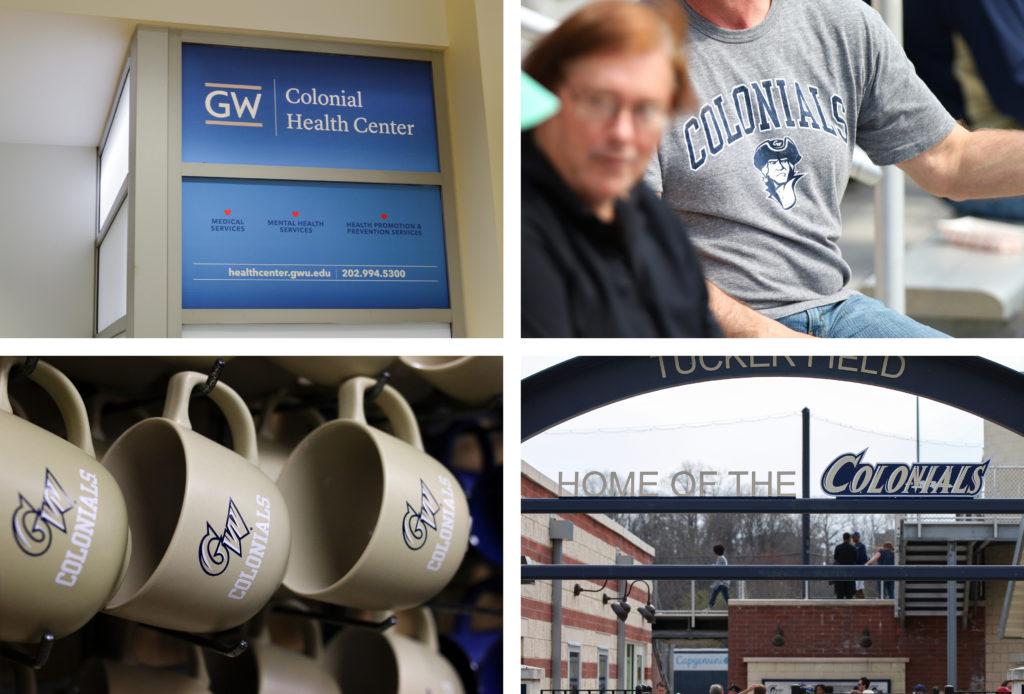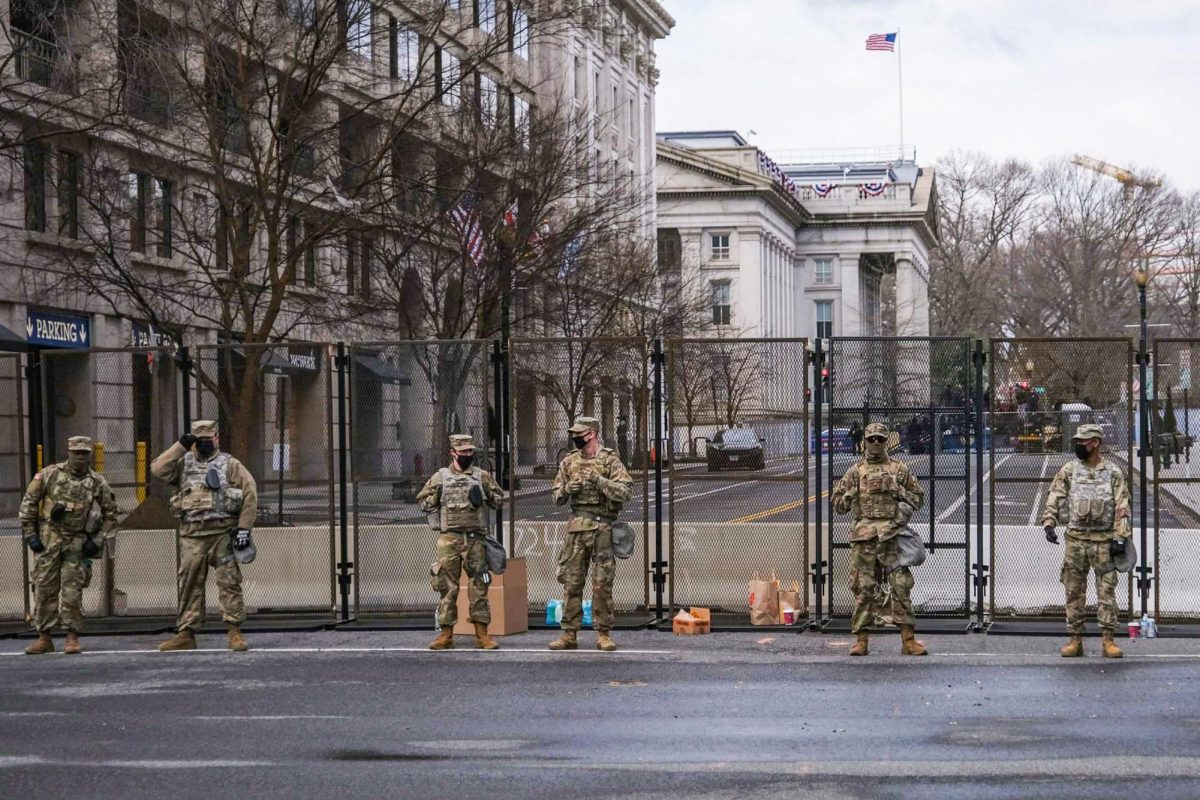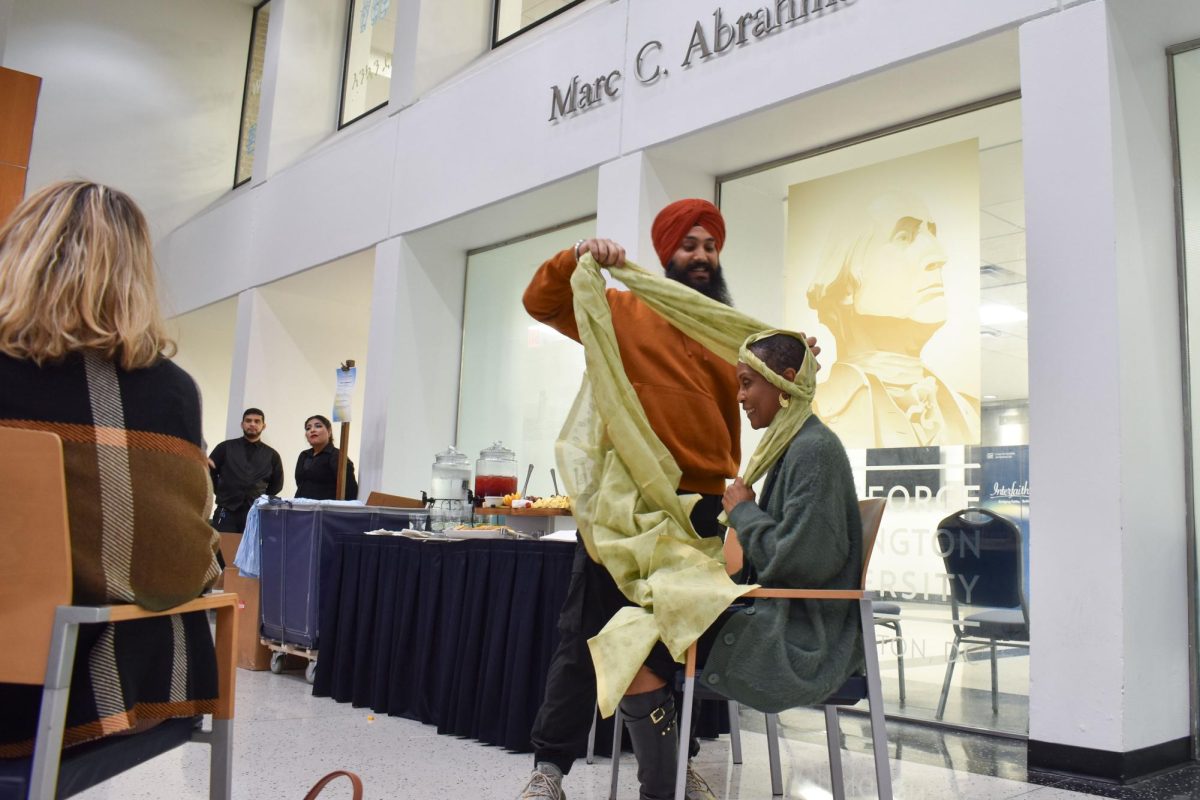The term “Colonials” is emblazoned on campus fixtures from the health center to sports jerseys, but some students are ready for a rebrand.
Following nearly a year of student advocacy, about 54 percent of students approved a referendum last week urging the University to swap the Colonials nickname with something less “offensive.” Officials declined to say whether they support changing the nickname, but Student Association leaders said the support of nearly 2,700 students who approved the referendum warrants a larger conversation among alumni, faculty, students and administrators to switch out “Colonials” with a new moniker.
“We were ecstatic that students took the time to express their voice,” said SA Sen. Amy Martin, ESIA-U and the executive vice president-elect. “We always thought that it was a decent portion of the student body that didn’t feel comfortable with this.”
No official stance
University spokeswoman Maralee Csellar said the University has “been following the conversation” about changing the Colonials nickname but declined to say whether officials support the switch. Csellar also declined to say the steps officials would need to take to change the nickname and how the University will work with students who introduced the referendum last month.
“The leadership of the University will continue to listen to our students, faculty, staff and alumni as we study various naming issues,” she said in an email.
Athletic department spokesman Brian Sereno also declined to comment, saying the issue is “a University matter.” All sports teams are called the Colonials.
SA Sen. André Gonzales, CCAS-U and a co-sponsor of the resolution that placed the referendum on the ballot, said administrators and members of the SA should ensure they are “honoring what students are saying in this matter” and work together to decide the next steps. He said SA leaders plan to create a task force involving officials, alumni, faculty and students to discuss phasing out the nickname.
“This administration needs to make a statement, they need to take a stand and they need to work with student leaders to figure out the path forward,” he said.
Students react to results
SA Sen. Hayley Margolis, CCAS-U, said she was “in shock” that the referendum was passed because SA leaders have mostly spearheaded the push for a change this year. She said student leaders will hold meetings with officials this week to kickstart the task force.
“We were prepared, if it didn’t go our way, that this wouldn’t end our fight or our advocacy, so we’re just grateful that it did, but we were prepared for whatever happened,” Margolis said.
Junior SJ Matthews, a candidate for SA president who will enter a runoff election next week, said she is “very excited” that the student body voted to change the Colonials moniker and supports the switch. Matthews did not include plans to change the nickname in her platform, though it was featured in two other platforms for the SA’s top two spots.
“I am excited to talk with not only current students and faculty but also alumni to see what we think the best change would be,” she said.
But some conservative student groups still oppose the name change. GW College Republicans and the GW chapter of Young America’s Foundation released statements before the election urging students to vote against the referendum.
Joey Rodriguez, the director of public relations for GW College Republicans, said that while the referendum was approved, his organization still stands against changing the nickname. He said rebranding the University would be an “extremely expensive” undertaking.
“At this time, we will not be advocating for or against the referendum in any way besides the statement that we made public,” he said in an email.
Kara Zupkus, the co-president of GW YAF, said the SA should not tune out the roughly 2,100 students who voted against the referendum and should engage them in conversation about changing the nickname. She said members of the organization will urge officials to keep the moniker, but she does not currently have plans to meet with administrators.
“We actually were never reached out to by anyone in the SA about changing the mascot, so if they would like to hear our opinion, and administrators would like to hear our opinion, we would be happy to give that,” Zupkus said.
Following precedent
Over the past two decades, dozens of colleges across the nation have dropped controversial nicknames, including the University of North Dakota’s “Fighting Sioux” in 2012 and Arkansas State University’s “Indians” in 2008.
Officials at schools that experienced similar pushes to change nicknames said that while many alumni feel attached to their alma mater through the school’s moniker, changing a controversial name often fosters a more inclusive campus for current students.
Victor Matheson, a professor at the College of the Holy Cross in Massachusetts, said faculty and students began a push to change the school’s Crusaders moniker in 2016. Proponents said the crusades were genocidal and noted the term’s wide usage by white supremacist groups like the Ku Klux Klan.
While officials shot down efforts to change the name in February 2018, Matheson said faculty will likely reintroduce the issue when a new college president takes office.
Matheson said the proposal to change the nickname received negative feedback from alumni because the name was “part of their lived experience” at the school. A group of students may have a difficult time swaying the “majority of alumni” who oppose the change, he said.
Several GW alumni have voiced disapproval of changing the Colonials nickname on Facebook posts featuring recent Hatchet articles about the referendum and a panel discussion on colonialism.
“Our experience at Holy Cross is that you better have really, really united support among the students if you’re going to budge the needle on the alumni who are likely fairly set in their ways and the traditions,” Matheson said.
Claire Wagner, a spokeswoman for Miami University in Ohio, said the school changed its mascot and nickname from the Redskins to the RedHawks in 1997 after a Miami tribe that previously occupied the area around the school urged officials to reconsider its brand.
She said officials formed a committee comprised of students, faculty and staff in October 1996 to draft ideas for a new moniker, and they eventually set on “RedHawks” the following April.
She said the school mainly faced backlash over the change from alumni who felt connected to the school through the nickname. But officials said the previous name hurt their relationship with the tribe that previously occupied the school’s grounds, and changing the name helped maintain a friendly relationship with the group.
“When it is the people who are involved, we thought it was the only and right thing to do,” Wagner said.
Gabby Pino and Zach Schonfeld contributed reporting.





